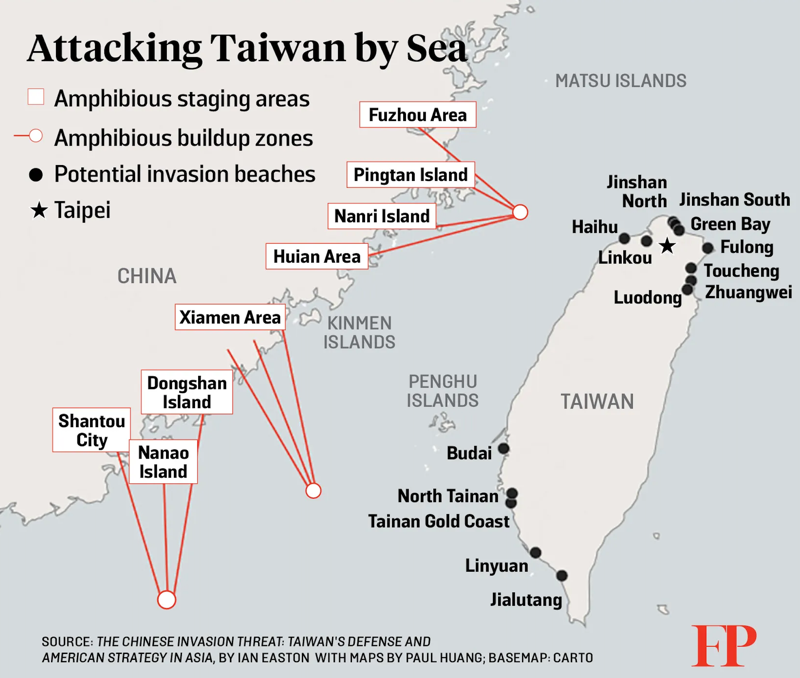It has been a turbulent week for Sino-US relations. Beijing criticized US Secretary of State Antony Blinken over his support for Taiwan’s new president, and the Chinese Ministry of Foreign Affairs (MOFA) imposed sanctions on US defense firms over Taiwan support.  depositphotos President Lai Ching-te was sworn in early Monday. Shortly after, Blinken released this statement, “We also congratulate the Taiwan people for once again demonstrating the strength of their robust and resilient democratic system.”Blinken added, “The partnership between the American people and the Taiwan people, rooted in democratic values, continues to broaden and deepen across trade, economic, cultural, and people-to-people ties.”These comments did not sit well with Beijing… “It’s a serious violation of the political commitment made by the US to maintain only cultural, commercial and other unofficial relations with the Taiwan region,” Foreign Ministry spokesman Wang Wenbin said Tuesday in response to Blinken’s comments. Fast-forward to Wednesday, when MOFA imposed sanctions on twelve US defense contractors and ten of their top executives for supplying Taiwan with arms, according to the Hong Kong media outlet Dimsum Daily.Here’s more from Dimsum:
depositphotos President Lai Ching-te was sworn in early Monday. Shortly after, Blinken released this statement, “We also congratulate the Taiwan people for once again demonstrating the strength of their robust and resilient democratic system.”Blinken added, “The partnership between the American people and the Taiwan people, rooted in democratic values, continues to broaden and deepen across trade, economic, cultural, and people-to-people ties.”These comments did not sit well with Beijing… “It’s a serious violation of the political commitment made by the US to maintain only cultural, commercial and other unofficial relations with the Taiwan region,” Foreign Ministry spokesman Wang Wenbin said Tuesday in response to Blinken’s comments. Fast-forward to Wednesday, when MOFA imposed sanctions on twelve US defense contractors and ten of their top executives for supplying Taiwan with arms, according to the Hong Kong media outlet Dimsum Daily.Here’s more from Dimsum:
The sanctions target prominent American defence corporations such as Lockheed Martin Missiles and Fire Control, Lockheed Martin Aeronautics, Javelin Joint Venture, Raytheon Systems, General Dynamics Armament and Tactical Systems, among others. The Chinese government has declared it will freeze its assets within China, impacting both movable and immovable property.
Furthermore, ten executives, including six from Northrop Grumman like Chairman and CEO Kathy J. Warden, will face travel bans restricting their entry into China, Hong Kong, and Macao. This measure extends to four executives from General Dynamics, highlighting the depth of Beijing’s retaliatory steps.
The Ministry criticized the US for disregarding China’s neutral stance on the Ukraine crisis and leveraging it to justify economic bullying and coercion. According to Beijing, these actions severely infringe upon the legitimate rights of Chinese firms and individuals and breach the foundational norms governing Sino-American diplomatic relations. -Dimsum Daily
Flashpoints such as Taiwan and the South China Sea must be monitored closely through the decade’s end. With the world fracturing into a multipolar state, conflict risk is elevated.  Last month, US Adm. John Aquilino, commander of the US Indo-Pacific Command, warned the timeline for Chinese President Xi Jinping to invade Taiwan is by 2027. More By This Author:Yellen Threatens German Banks With Sanctions; EU Approves Using Russian Asset Profits For Ukraine’s DefenseAluminum Jumps To 23-Month High Amid Ongoing Aussie Production IssuesWTI Extends Losses After API Reports Unexpected Crude Build
Last month, US Adm. John Aquilino, commander of the US Indo-Pacific Command, warned the timeline for Chinese President Xi Jinping to invade Taiwan is by 2027. More By This Author:Yellen Threatens German Banks With Sanctions; EU Approves Using Russian Asset Profits For Ukraine’s DefenseAluminum Jumps To 23-Month High Amid Ongoing Aussie Production IssuesWTI Extends Losses After API Reports Unexpected Crude Build







Leave A Comment